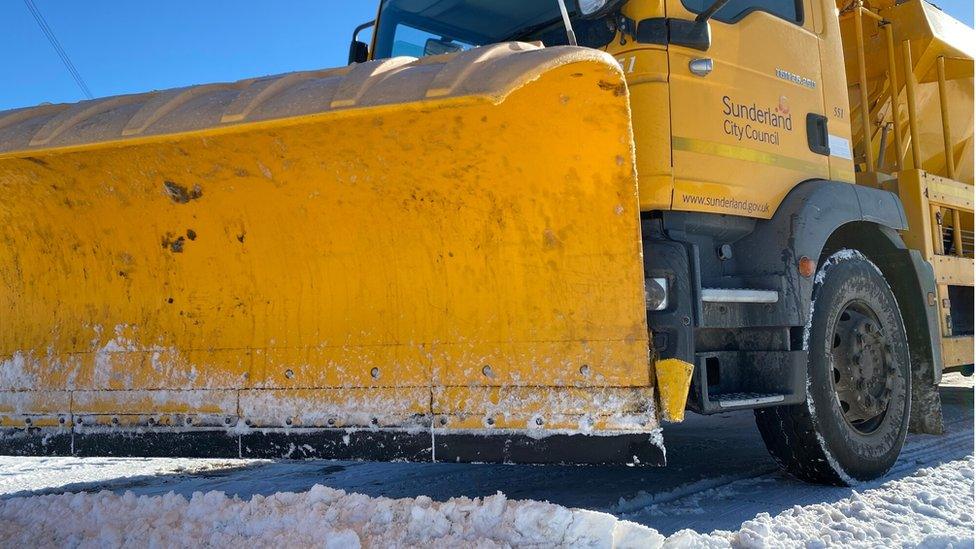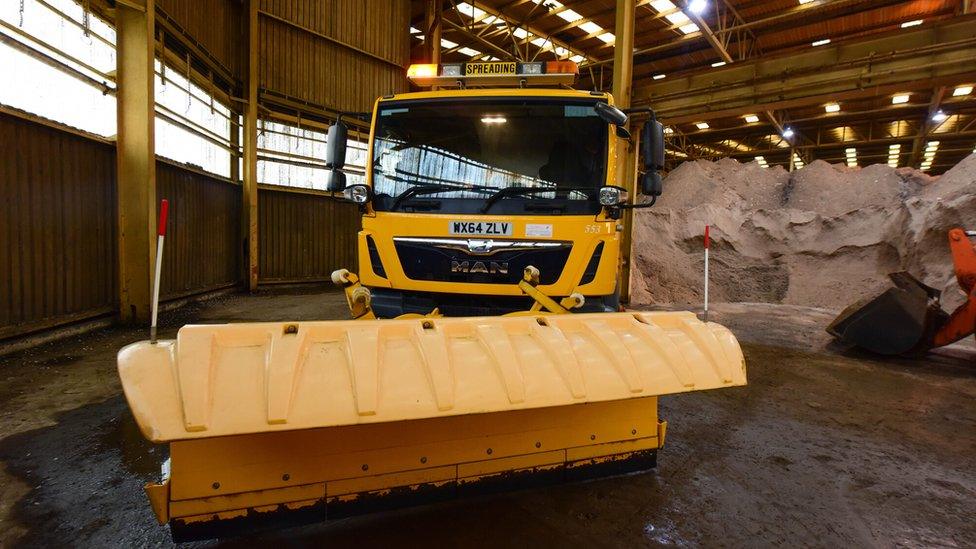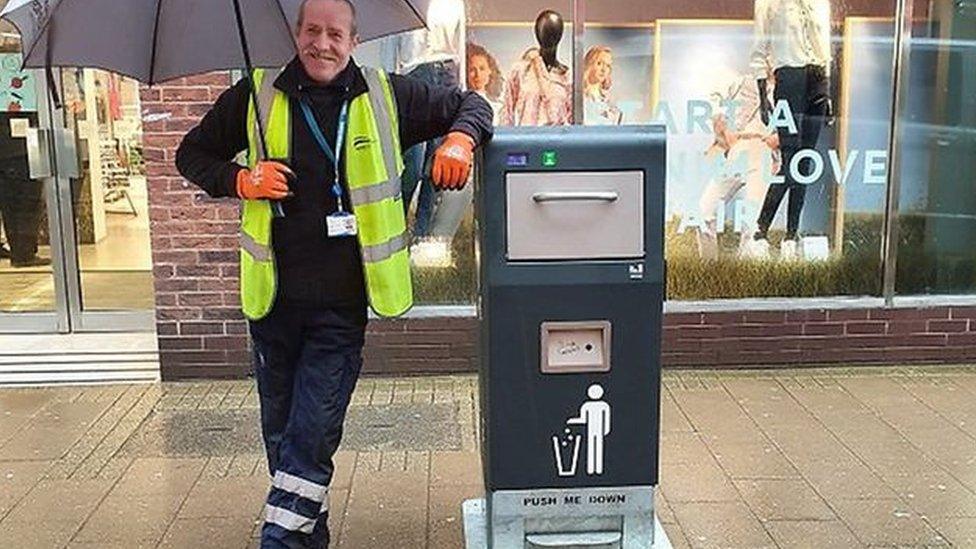Sensors installed across Sunderland to monitor road temperatures
- Published

The council has outlined its priorities for treating highways during wintry and more severe weather
Sensors that monitor road surface temperatures are being fitted across Sunderland to help inform gritting teams which routes need treating.
More than £1m has been allocated to keep the city's roads safe and clear in the coming weeks and months.
Bus routes and roads with high levels of traffic are priorities, the city council said, but residential areas are "unlikely to be treated".
The authority has stockpiled 13,500 tonnes of salt for use on its highways.
Infra-red sensors will be mounted on lampposts at 10 locations across Sunderland, with the pilot scheme expected to begin next week.
They will work by providing data on the temperature of road surfaces to the environmental services team which, along with predictions from the council's weather stations, will determine the roads to be gritted.

The council says it uses specialised equipment which predicts estimated road surface temperatures
The council's deputy leader, Claire Rowntree, said: "We have to keep these main roads as clear as possible so people get to work, school or college, help to keep the emergency services moving, and see that goods can move across the city.
"Should there be heavy snow, we always look to divert staff on to clearing duties from footpaths near hospitals, in shopping centres, and outside schools and colleges."
Principal gritting routes across Wearside include the A1231, A690, A183, Newcastle Road, Ryhope Road, Southern Relief Road, A182, A195, and routes through Hetton, Houghton and Washington.

Follow BBC North East & Cumbria on Twitter, external, Facebook, external and Instagram, external. Send your story ideas to northeastandcumbria@bbc.co.uk, external.
Related topics
- Published22 April 2021
